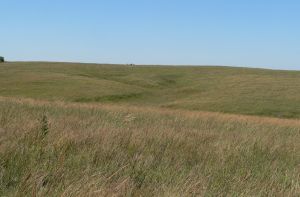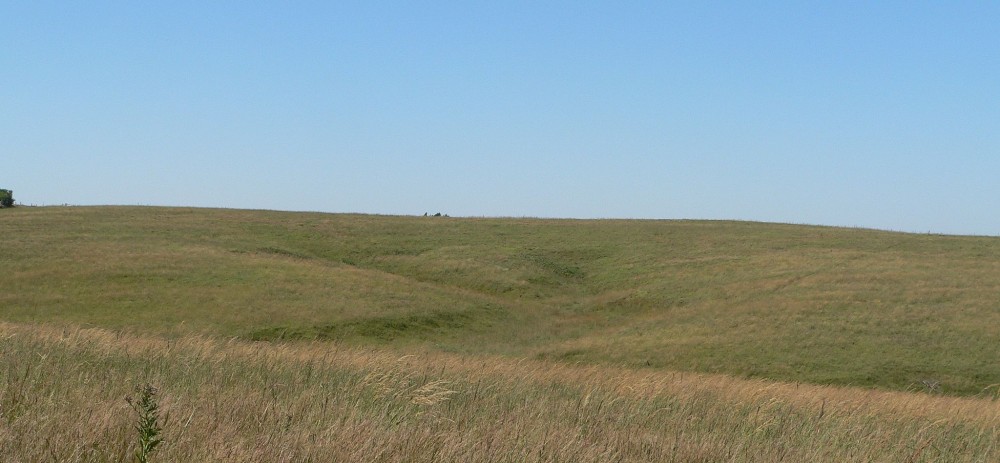The other class I’m taking this semester is a a teacher education course. For a lesson planning assignment, I found myself needing to re-read Cather’s My Antonia so I could put together something that I could be proud of (or at least comfortable with.)
In going through my books, I couldn’t find a copy of My Antonia, which was a little upsetting With a couple of clicks I downloaded a free copy to my iPad and was on my way.

Photo of the Willa Cather Memorial Prairie near Red Cloud, Ne.
My history with the book goes back to my junior year of high school when it was an assigned text. I re-read it in college (the first time round) and re-read it again for comps while I was getting my MA. The virtual page experience wasn’t too different than my previous re-reads.
I did get my lesson plan done, but going through My Antonia got me thinking about this class and assigned texts vs. free reading. Earlier in the course, I’ve written a bit about how books can have a greater impact on a person depending on where a person is in life. My Antonia, for me, is an example of that kind of text.
When I was in high school, the book and Willa Cather didn’t mean anything to me. I read the book, answered quiz questions about it, probably wrote a short essay or two, and I was done. Despite being told by my English teacher that the book was important and Cather was a huge literary figure, it didn’t make an impact. I was reading Kurt Vonnegut novels back to back (my serious reading) and some occasional science fiction junk.
The book, and Willa Cather’s style, did stay with me, though. I loved My Antonia when I re-read it, and the quality of it still holds up. Cather captures not only the landscape of the state but how people behave, and that still rings true to me. So why did I end up liking a book so much in my 20s and later that I was indifferent to as a teen? The answer is perspective. My Antonia is a book about longing, about looking back. As a teen I didn’t appreciate or understand that. I also didn’t appreciate how funny, interesting, tragic Midwestern social mores could be, either. Simply put, at 16 I was too young to appreciate the book. But reading it in high school set the stage for me to revisit it and then dive into O Pioneers, The Professor’s House, Death Comes for the Archbishop, A Lost Lady, and more just a few years later.
Here’s a question I don’t have an answer to — Would I have read any of Willa Cather if I had not slogged my way through My Antonia as a junior in high school? Reading the book at 16 proved I could get through the text. I wasn’t intimidated by the reading even if it didn’t do much for me. At 24 or 28 or 35, would a person pick up Cather or Twain or Fitzgerald or Shakespeare if they didn’t have some experience with those authors earlier in life?
I think there are good and important ideas on both sides of the free reading vs. assigned texts discussions that we have had in this class. I certainly see value in simply getting kids to read, even if the books they start with aren’t traditional or have great literary merit. But I’m also a believer that what you read makes a difference. If your physical health is linked to what you consume (you are what you eat) I also believe that you brain and soul need health food — quality books, art, movies, etc. — to keep going.
* * *
And here are a few Cather links take a peek at if you’re interested:
* * *
Final bit of trivia — this is my 50th blog post.

